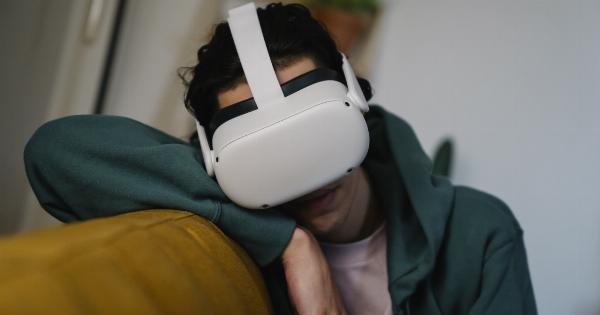Have you ever searched frantically for your phone, only to realize that it’s been in your pocket the whole time? Or maybe you’ve looked for your keys all over the house, only to find that they were sitting right on the kitchen counter? It can be incredibly frustrating to miss something that’s right in front of you, but it happens to all of us. So why do we sometimes miss things even if they’re right in front of us?.
The Science of Attention
One reason we might miss things is that our brains are built to filter out information that isn’t important. Our brains are constantly bombarded with stimuli from the environment, and we can’t possibly pay attention to everything.
So, our brains prioritize what we need to pay attention to and filter out the rest. This can be helpful in some situations, but it can also cause us to miss things that we might need to notice.
Additionally, our brains are wired to find patterns and make assumptions based on past experiences. This can be helpful for things like recognizing faces or knowing how to navigate a familiar environment.
But, it can also lead us to overlook things that don’t fit with our expectations. For example, if you’re looking for a red apple in a basket of green apples, your brain might not even register the green ones, even though they’re right in front of you.
The Role of Attention
Attention plays a big role in our ability to notice things. When we’re focused on one task or goal, we can become oblivious to other things in our environment. This phenomenon is known as inattentional blindness.
For example, if you’re driving and you’re focused on finding your exit, you might not notice a billboard or other landmarks that you would normally recognize.
Another factor is cognitive load. When we’re trying to process too much information at once, it can become difficult to notice important details.
When we’re stressed, overwhelmed, or multitasking, we’re more likely to miss things that we would normally notice.
The Impact of Emotions
Our emotional state can also affect our ability to notice things. When we’re anxious or stressed, we can become hyper-focused on our own thoughts and feelings, which can make it harder to notice what’s going on around us.
When we’re happy or in a positive mood, we’re more likely to notice things in our environment.
In addition, our expectations and preconceptions can be influenced by our emotions. For example, if we’re feeling anxious about a job interview, we might be more likely to interpret neutral or ambiguous signals from the interviewer as negative.
The Role of Perception
Another reason we might miss things is that our brains don’t always perceive things accurately. Our brains use shortcuts or heuristics to process information quickly, but these shortcuts can also lead to errors.
For example, our brains might fill in missing details based on our expectations or assumptions, which can lead to errors in perception.
Additionally, our brains are constantly receiving information from our senses, but that information isn’t always perfectly clear.
Our brains have to fill in gaps and make assumptions based on the available information, which can lead to errors in perception. For example, optical illusions trick our brains into perceiving things that aren’t really there.
The Impact of Technology
Finally, technology can also play a role in our ability to notice things. Our reliance on technology can make us less observant of our environment. For example, if we’re walking while texting, we might not notice a hazard in our path.
Additionally, our brains can become accustomed to the constant stimulation of technology, which can make it harder to notice things that are more subtle or less visually stimulating.
Overall, there are many reasons why we might miss things that are right in front of us. Our brains are built to prioritize information and filter out what isn’t important.
Additionally, our emotions, attention, perception, and reliance on technology can all impact our ability to notice things. By understanding these factors, we can become more mindful and attentive in our daily lives.































